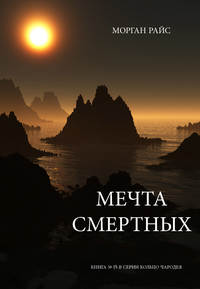
Полная версия
The Scepter of Fire
He’d had no choice but to put a protection spell around the school that banned her from ever entering. Not that such a thing would stop Magdalena Obsidian. Now, she just sent children to do her bidding, or manipulated the laws of the dimensions for her own means. He knew what she’d done with Edmund. She’d twisted his mind by projecting herself through the dimensions, something extremely dangerous that he’d only ever done one time, out of desperation, in order to tell Oliver he needed to find the Scepter of Fire. He knew, too, that she sent her little army of students through time, that she’d even summoned the dark army. She never got her hands dirty herself. Professor Amethyst had mused away many an hour wondering why. He’d come to the conclusion that she knew if she ever looked her old mentor in the eye again, she’d have to confront the reality of her situation. That she was wrong. That she’d gone rogue. That she’d left nothing but destruction and chaos in her wake.
Suddenly, Professor Amethyst heard the clattering footsteps of the Obsidian children as they began to race up the steps toward him. He doubled his efforts to ascend. But he felt his knees creaking. His bones and muscles weren’t strong enough for this. He was thousands of years old, after all. There was only so much the seer body could take.
He would have to fight them.
The last thing Professor Amethyst wanted was to fight children, especially the ones who’d been brainwashed by Magdalena Obsidian. But on the other hand, every minute the Obsidian students spent in the School for Seers was another moment they weren’t pursuing Oliver or Esther on their quests to locate the Scepter of Fire. Perhaps he could buy the two teams some time by causing a distraction.
Just then, he heard footsteps reach the landing behind him. He twirled on the spot. Four children were facing him; a girl with ginger plaits, a second with black hair and nails, a pale boy with bony cheekbones and a long, thin, shrew-like nose, and a final boy, heavyset with broad shoulders like a quarterback, and the most disconcertingly coal black eyes.
“Ah,” Professor Amethyst said, jovially, to the four. “Welcome. Are you prospective students? I’m afraid the school is undergoing something of a transformation at the moment. It’s zapping out of time. So it’s unlikely I’ll be unable to take on any new students until the old shakeroos are resolved.”
The four children looked at one another, confused, their expressions vile and conceited. Professor Amethyst felt only pity for them, for failing to find them before Magdalena Obsidian, and for the inflated egos she’d given them.
“What are you yammering on about, old man?” the large boy said.
The darker one turned to him and sneered. In a nasty voice, he said, “Don’t you know who that is? That’s Professor Amethyst.”
The headmaster continued with his distraction tactics. He put a hand on his chest. “Oh! Am I famous?”
But the children had lost their patience. They glared at him, teeth bared like feral creatures, and began to advance.
Professor Amethyst felt a lump form in his throat. It was time to fight.
CHAPTER NINE
“What is the compass telling us now?” Simon asked Esther.
She looked down at the bronze instrument. All the symbols it was showing seemed to be related to the ocean—boats, fish, the anchor again.
“I think we should head to the harbor,” she said.
The sun beat down on them as they journeyed along the narrow path toward the glittering ocean. The masts of many vessels bobbed up and down, and Esther marveled at them. Their designs were ancient. They were so old that Esther couldn’t even think of any wrecks that had survived to the modern era to be viewed in museums, so to see them with her own eyes was truly awe-inspiring.
When they reached the harbor, it was just as bustling as the market had been. There were men dressed in linen cloaks hauling nets filled with fresh fish, as well as boats unloading precious cargo from faraway lands. This was clearly a very important trading hub, Esther reasoned.
Luckily, thanks to their outfits, they drew barely any stares at all, and were able to mill around looking for clues as to their time, whereabouts, and where they might find the Scepter of Fire.
“Rhodes,” Simon said suddenly. “We’re in Rhodes.”
“Really?” Esther asked, her eyes widening with surprise.
Rhodes was one of the islands that belonged to the Greek empire. She wondered why the Professor might have sent them here rather than to the mainland. She racked her brains, trying to recall which Ancient Greek philosophers resided in Rhodes in the BC years.
“How do you know?” Walter asked Simon.
Simon pointed to some lettering printed on a sign beside the harbor. It wasn’t in the same alphabet, but a completely different one. Walter pulled a face.
“How’d you get Rhodes from that?” he said. “Looks like gobbledygook to me!”
Simon rolled his eyes. “My education in Victorian London was extremely fine. We studied both Latin and ancient Greek. Honestly, there’s no better way to read the old philosophers than in their own tongue.”
As the boys squabbled, Esther attempted to work out what date they may have arrived in. She recalled the Colossus of Rhodes, the great statue built beside the ocean and one of the ancient wonders of the world. But all they could see of it now were the two columns of stone upon which its feet had once stood. So they must have arrived after its collapse in 226 BC.
That narrowed it down slightly. But they were still a long way from anything concrete.
“Since you know so much about Greek philosophers,” Esther said to Simon, “any idea which ones lived on Rhodes?”
“Well, there’s Andronicus of Rhodes,” Simon said. “Who lived here around 60 BC.”
Just then, Esther’s attention was drawn to an elderly man sitting on an upturned crate alone, staring out to sea. Something about his face seemed familiar to her, though she couldn’t quite place it. The way he was staring contemplatively was at great odds to all the people hurrying around him. His clothes made him look rich and important. The way he stared out to sea as though in deep thought made him seem scholarly. There was also a pile of parchments on his knee that Esther could just make out was filled with sketches.
Whoever the man was, he appeared to be someone of importance. A scholar. Perhaps even a philosopher. And considering most of the scholars of the past turned out to be seers, or linked to seers in some capacity, she decided he was a good place to start.
“Is that him?” Esther asked, interrupting Simon’s monologue about philosophers and pointing at the man.
Simon squinted and shielded his eyes from the sun with his hand. “Well, I wouldn’t know. I don’t think there are any surviving portraits of Andronicus of Rhodes.”
Walter gave a shrug. “Meh. He looks like a philosopher to me. We may as well go and say hello.”
He waltzed off in the direction of the man. Simon and Esther exchanged a glance and a shrug, then followed after their confident, unfazed friend.
But as they drew closer, Esther suddenly realized where she’d seen the old man’s face before. It was in the history rooms of the School for Seers! The school had lots of busts on display of famous scientists, mathematicians, philosophers, politicians, and the like. This face—though now lined with wrinkles—belonged to Posidonius, the Stoic philosopher whose teachings had been mainly lost in time.
Esther flailed out an arm, gripping hold of Simon by the wrist. “I think I know who that is.”
Simon was nodding, clearly having put two and two together at the exact same moment as Esther had.
“Posidonius!” they both cried in unison.
The man looked up sharply from his work. He took in the sight of Walter standing before him, who, despite his toga and sandals, still looked very different with his dark skin amongst all the bronzed Greeks. Then his gaze flicked to Esther and Simon, roving from their feet to their heads. He looked just as surprised at the sight of pale Simon in his cobbled together outfit.
He frowned, clearly confused by the three young children standing before him who somehow knew his name and had exclaimed it with such enthusiasm.
He began to speak. But Esther had no idea what he was saying since he was speaking in ancient Greek. She turned to Simon.
“Can you translate?” she asked.
Simon shifted from one foot to the other, his cheeks starting to go a little pink. “Well, no. I mean, we learned how to read the language, not speak it.”
Walter laughed. “So much for a fine education.”
“Actually, no one knows how to properly pronounce the ancient languages,” Simon contested.
“Hush,” Esther said to them both. “Stop squabbling. We need to work out a way to communicate with Posidonius. He must be the reason we’re in Rhodes.”
“So who is he?” Walter asked.
“Posidonius,” Esther repeated. She searched her mind for everything she could recall of the philosopher. “He studied physics, and astrology, and how the tides are controlled by the moon. Ooh, and he died in 51 BC at the age of eighty-three.”
She looked at the old man again. He looked to be roughly that age now. That must be where they’d landed: Rhodes, 51 BC, during Posidonius’s last days alive.
“And you think he’ll help us?” Walter asked. “That he’ll help us find the Scepter of Fire?”
“I don’t know,” Esther confessed. “But that’s usually how Professor Amethyst’s missions work. He sends us somewhere to find a seer to help in the quest.”
She thought of Oliver and their mission together back in the time of Newton. She missed him desperately. But now was not the time to get sidetracked by emotions.
She turned back to Posidonius and tried again. “Seers,” she said, pointing at the three of them, hoping the term translated universally across all languages. “Seeeeeers.”
Simon shook his head. “That’s not working.”
“Scepter!” Walter said, miming a long baton. Then he wiggled his fingers like a campfire. “Of Fire.”
Posidonius’s frown just grew stronger. In fact, he looked rather irritated by the intrusion of the children. With a heavy sigh, he stood and swirled off away from them.
As she watched him go, Esther felt helpless. Why would Professor Amethyst have sent them to Rhodes, approximately in the year 51 BC, if not to speak to Posidonius? What other person might they be here to speak to?
“Look!” Walter cried. “Old Posidonius left something behind!”
He reached forward and grabbed a stack of papers that had been resting against the crate. They were definitely Posidonius’s. He must have forgotten he’d placed them there.
Esther was just about to run after him and hand them back, when she paused. Maybe whatever Posidonius had been sketching would provide some kind of clue.
She held up the first page. It was a rather detailed sketch of a building. There was a word written beneath it.
“Simon, do you know what that says?” she asked.
The boy leaned closer and squinted. “Ah, yes. That word means school.” Esther watched as his eyes quickly scanned the rest of the writing. “It appears that Posidonius is setting up a school on one of the surrounding island archipelagos.” Then he began to chuckle. “According to his notes, his Stoic philosophy is not welcome here.”
“Show-off,” Walter mumbled.
Esther turned to the next page in the stack. This time, the picture Posidonius had drawn was a map. Each island had been labeled.
Simon began to read them aloud. “Kos. Patmos…”
Esther recognized them all. But then one name Simon uttered made her pause.
“Cousteau?” she said, repeating what he’d just said. “There is no island called Cousteau.”
“You’re right,” Simon said. “It must have been renamed.”
But Esther’s mind was going into overdrive. “Why does that name sound familiar to me?” she said, tapping her chin contemplatively.
Simon continued. “Well, whatever it means, it appears to be the same island upon which Posidonius has drawn a large X for the location of his school.”
Конец ознакомительного фрагмента.
Текст предоставлен ООО «ЛитРес».
Прочитайте эту книгу целиком, купив полную легальную версию на ЛитРес.
Безопасно оплатить книгу можно банковской картой Visa, MasterCard, Maestro, со счета мобильного телефона, с платежного терминала, в салоне МТС или Связной, через PayPal, WebMoney, Яндекс.Деньги, QIWI Кошелек, бонусными картами или другим удобным Вам способом.












